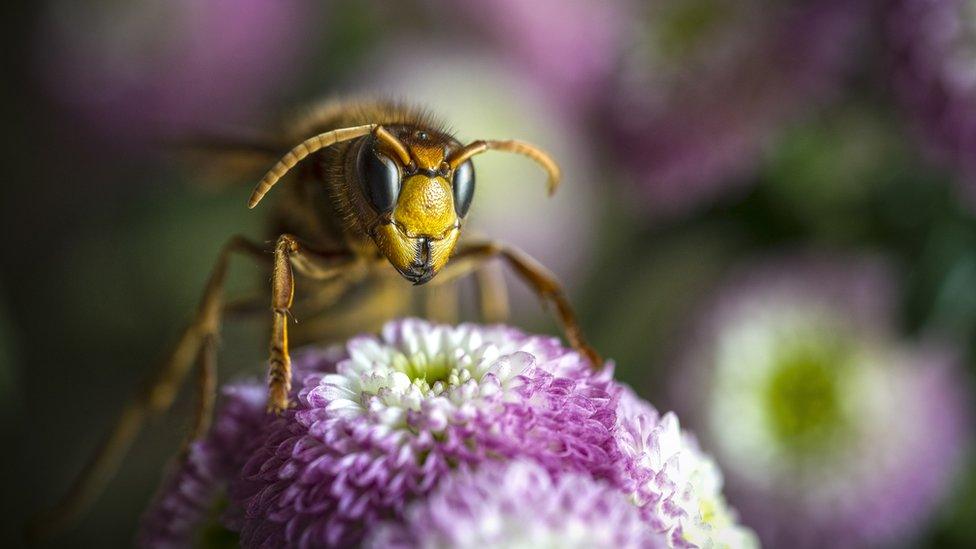Race against time in Asian hornet battle
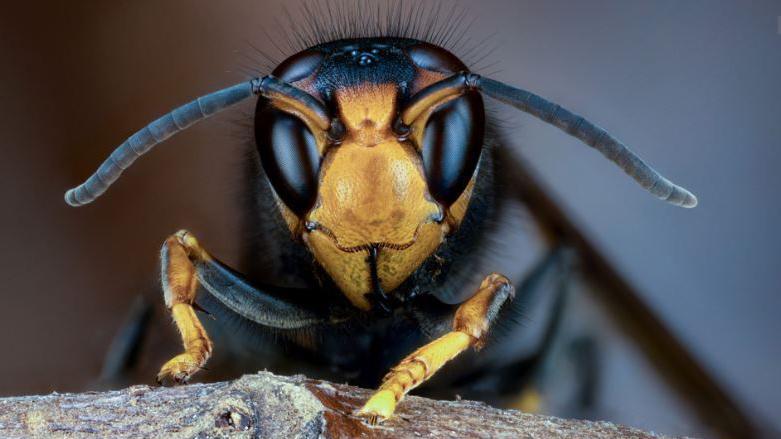
Last year the National Bee Unit found and destroyed 72 Asian hornet nests
- Published
Bee inspectors in the South East are battling to destroy Asian hornet nests before new queens hatch later this month.
The Animal Plant Health Agency’s (APHA) bee team has already discovered 10 nests in Kent and Sussex, an area of the UK mainland which has witnessed most sightings of the invasive species.
One nest could contain thousands of the predators, which are capable of killing 11kg (24lb) of insects in a season, including honeybees and other pollinators
The National Bee Unit found and destroyed 72 nests in 2023, the majority in south-east England.
During autumn, the hornets shift from foraging and nest expansion to reproduction.
Research, external found nests may produce up to 350 future queens and three times as many male hornets.
The newly fertilised queens will leave the nest and find somewhere suitable to surive winter, before starting new colonies in the spring.
In Alkham, Kent, inspectors have tracked a nest 30m (98ft) up a tree.
Tracy Wilson, from the APHA, said: “At this stage the queen is almost certainly one queen, but as we move into the autumn more will be laid with the intention that those ones will then disperse.
“We need to get to those nests before the additional queens can disperse."
Watch on iPlayer
The Killer Hornets
- Attribution

Tracey Wilson said they need to stop additional queens from dispersing
The number of nests so far discovered in the UK is down on 2023, but many beekeepers are sceptical eradication can ever happen.
Tony Warren, a beekeeper in Gravesend, Kent, was so concerned he set up his own alert group.
He said: “The horse has bolted. It’s out of the field. It’s into the next field and in the next village.
“Suddenly you’ll get a boom year. You’ll get all the right conditions and they’re off again.”
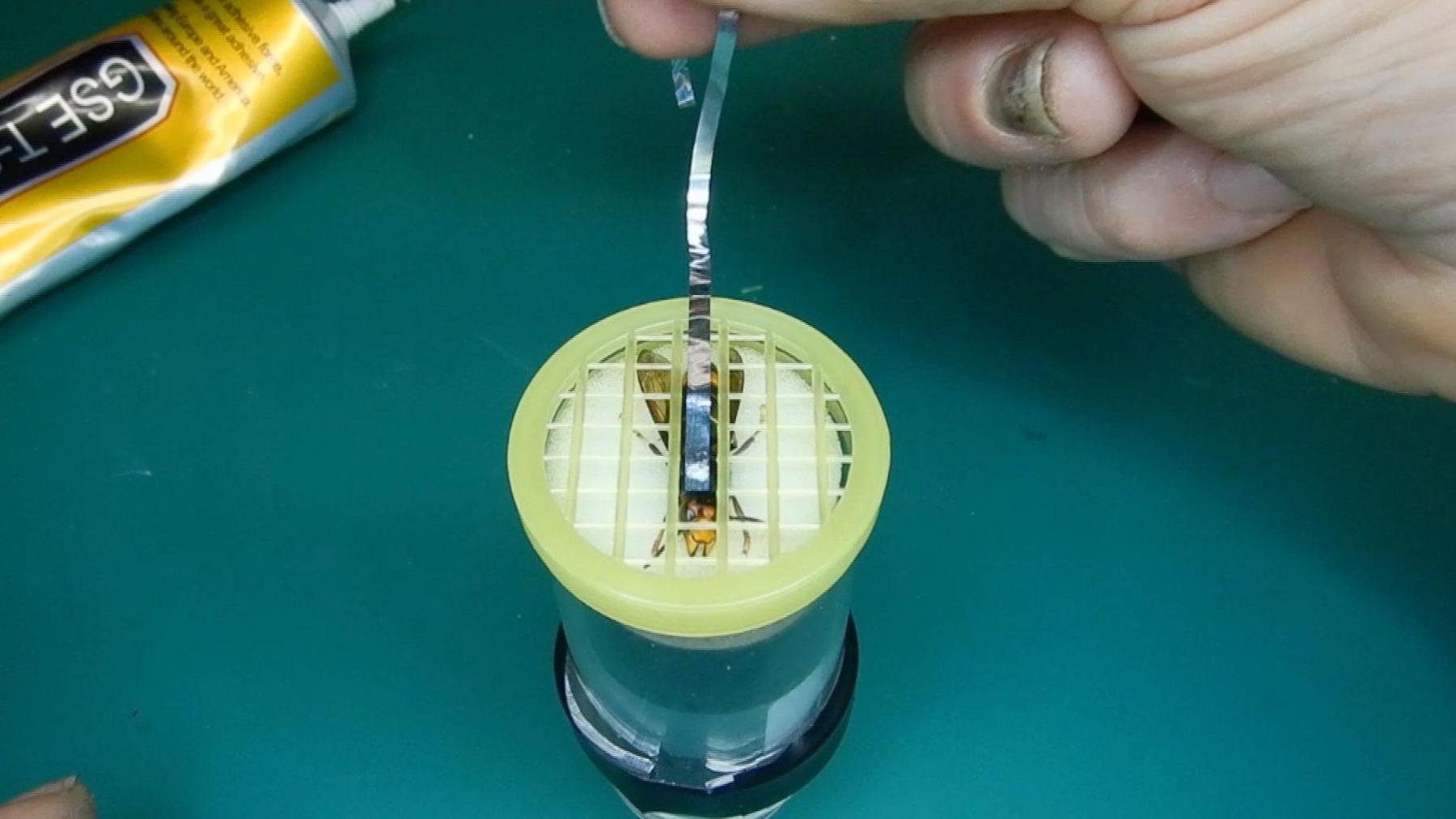
In Jersey captured hornets are fitted with tinsel so they will lead volunteers to their nests
Beekeepers in the South East are calling on the government to adopt a model developed on the Channel Island of Jersey where local volunteers set up bait stations.
They tag captured insects with tinsel so they are more visible and can be tracked back to their nests or timed to see how long it takes them to return.
John de Carteret, one of the Jersey organisers, said: “A dead hornet is just a dead hornet - it will prove it’s a hornet. A live hornet will betray where the nest is."
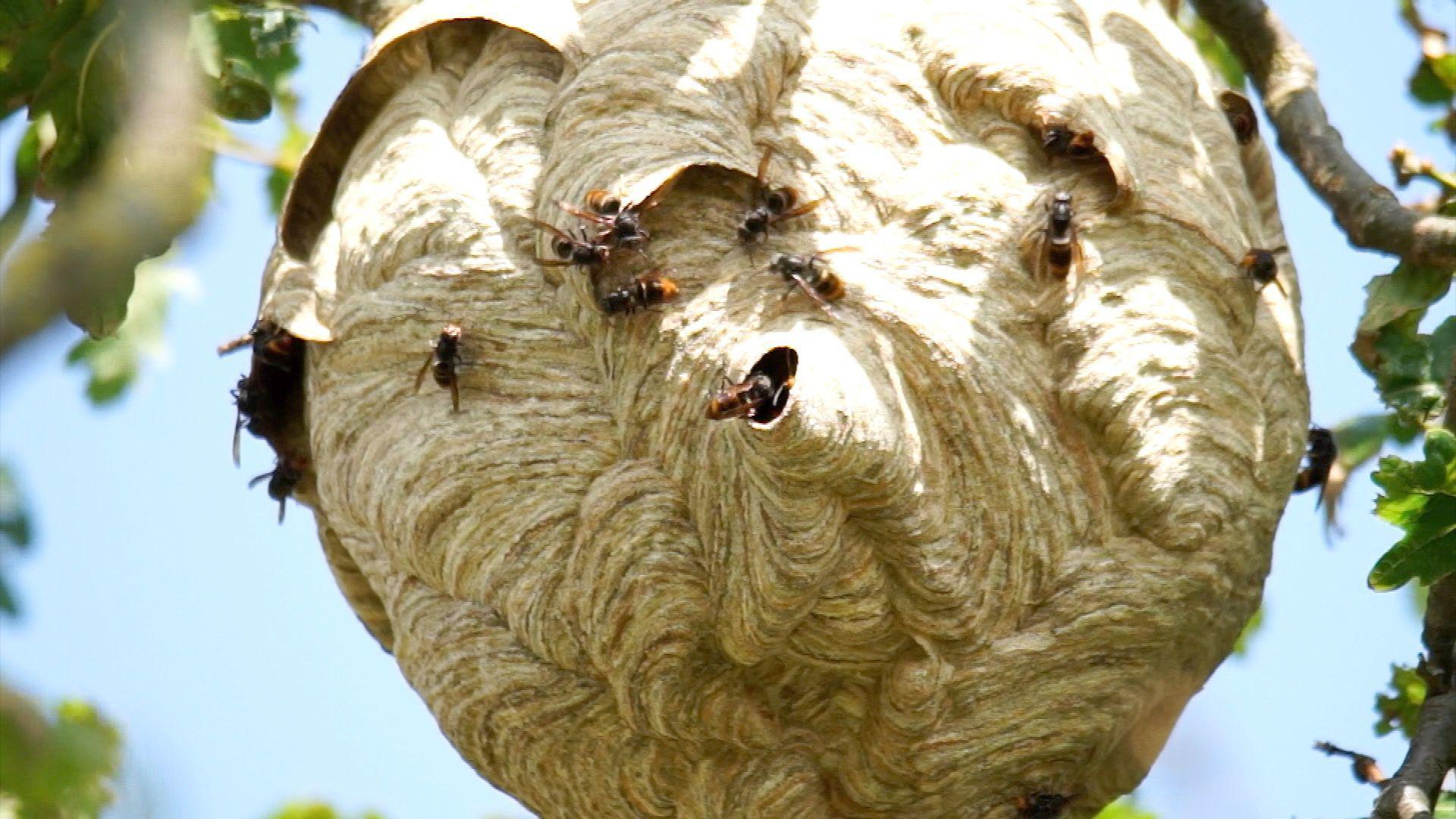
This Asian hornet nest was discovered in Jersey
In the UK releasing an invasive alien species back into the wild is illegal without a special licence, with only those working for APHA licenced to do so.
Anyone spotting an Asian hornet is asked to take a photo and report it on the Asian Hornet Watch app.
Asian hornets are native to Southeast Asia but can be transported around the world in cargo. They are widespread in mainland Europe and can be blown across the Channel.
The invasive hornets are wreaking havoc in mainland Europe and threaten to get a foothold in the UK, with nests found in East Sussex, Kent, Devon and Dorset.
Follow BBC Kent on Facebook, external, on X, external, and on Instagram, external. Send your story ideas to southeasttoday@bbc.co.uk, external or WhatsApp us on 08081 002250.
Related topics
Related stories
- Published4 September 2023
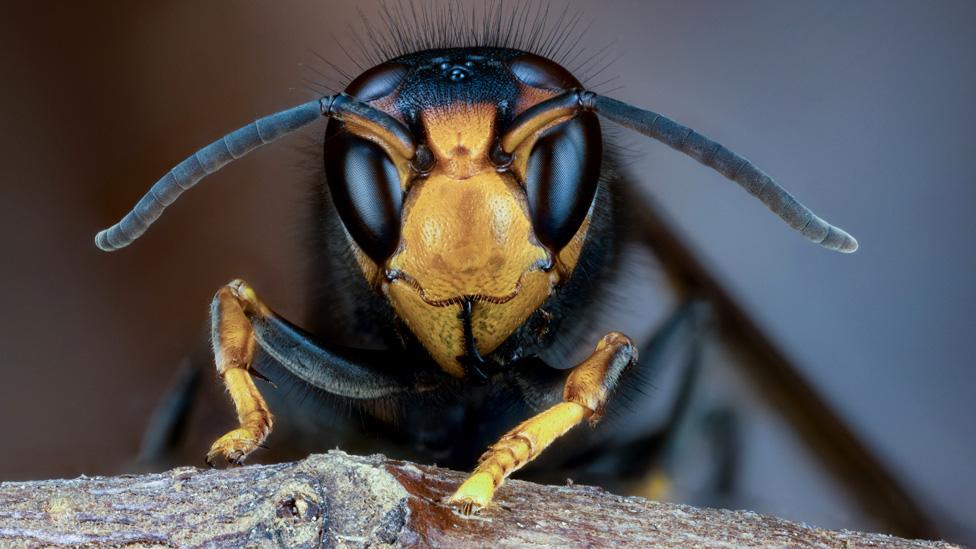
- Published12 December 2018
